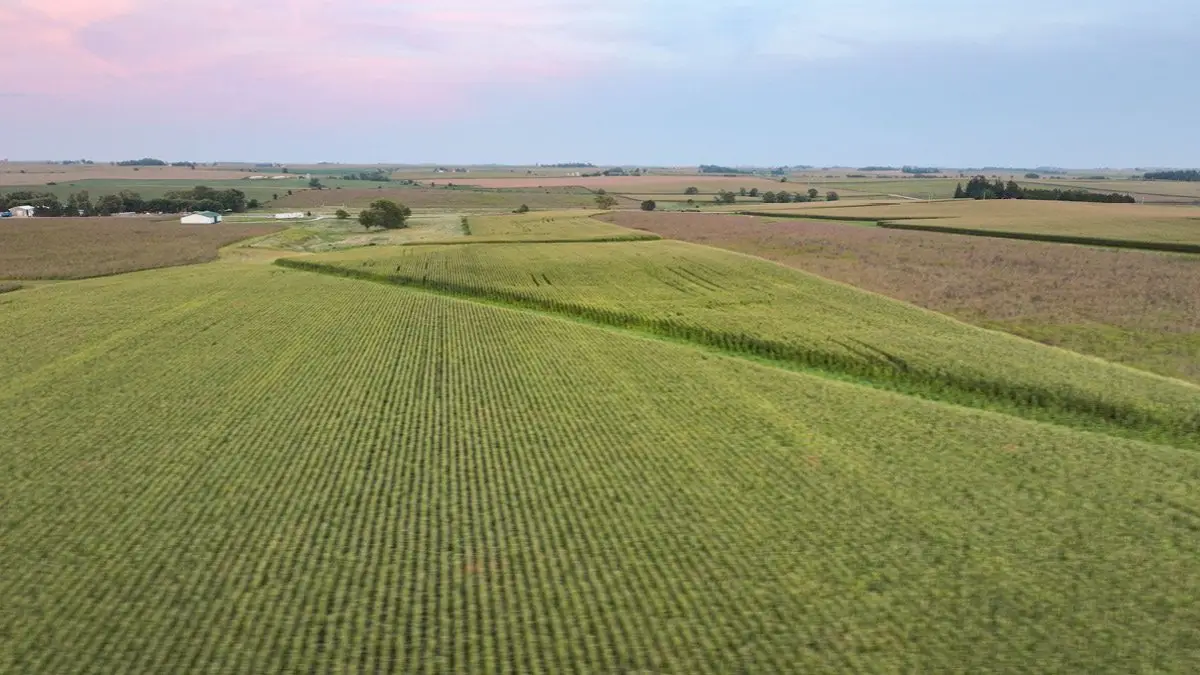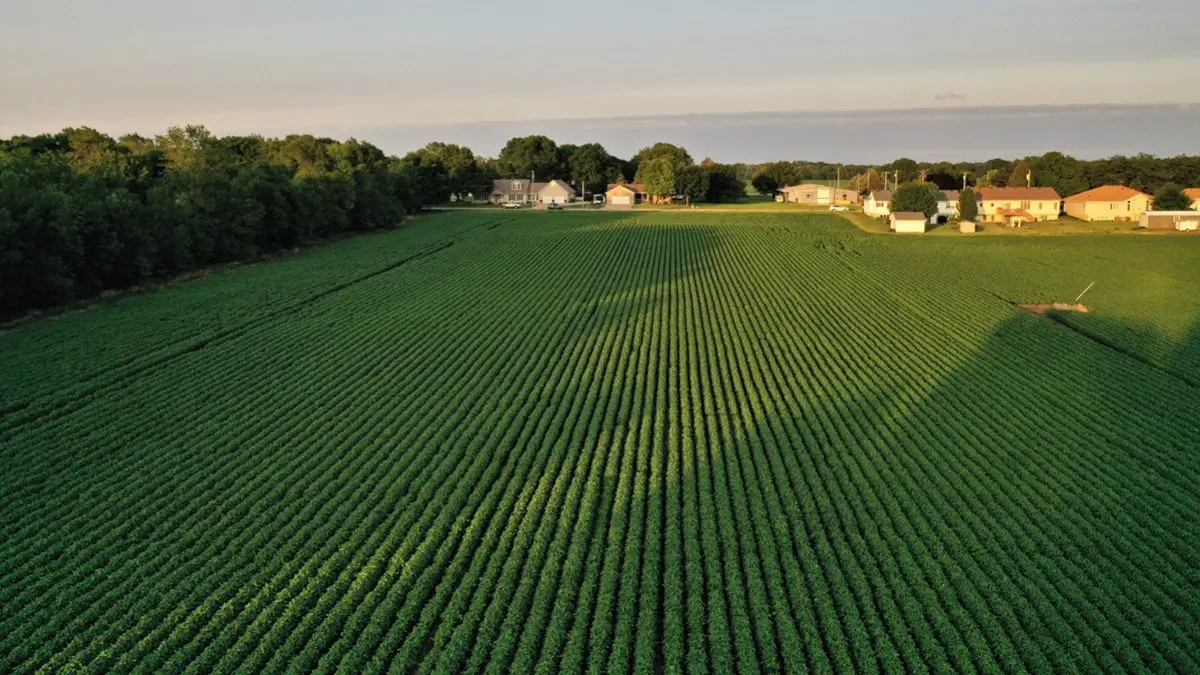Forbes: Meet The Farm-Based Neighborhoods Changing The Face Of Master-Planned Communities
Forget the pristine landscaping, five-star golf courses and resort-style amenities that master-planned communities have become known for. Thanks to a handful of developers and their more sustainable approach to planning, a new vision of the American neighborhood has emerged—and it’s called the “agrihood.”
Rather than lap pools and community centers, these neighborhoods boast organic farms, herb gardens and edible nature trails. They have weekend farmer’s markets, cooking classes and employ full-time farm directors and artists-in-residence. Some even have camps and children’s programs to help foster healthy, sustainable living in the next generation.
According to the Urban Land Institute, “Agrihoods offer proven financial, health, and environmental benefits—to the stakeholders involved in their implementation, to surrounding communities and to the planet.” Read More
Blaming declining interest, Iowa 4-H selling 1,000 acre camp
Citing declining participation and increased costs, the Iowa 4-H Foundation announced Wednesday that it is selling Clover Woods Camp & Retreat Center in Madrid.
Formerly known as the Iowa 4-H Center, the property is for sale through a sealed bid process.
Interested investors can submit a bid through the Peoples Company through Oct. 23. Read More
Bloomberg: How a Manhattan Scion Built a Rural Empire
Stefan Soloviev is in his “western office”—the passenger seat of a Chevy Silverado bouncing along a dirt road near the Kansas-Colorado border, his farm manager at the wheel.
It’s a far cry from his desk on the 45th floor of 9 W. 57th St. in Manhattan, a skyscraper famed for its Central Park views, private equity tenants and irascible owner—Soloviev’s 91-year-old father, billionaire developer Sheldon Solow.
Out here, the son is the empire builder. In ball cap and T-shirt, flexing elaborately tattooed arms, he works the phone as the four-ton truck kicks up a dust cloud between the wheat fields. His wheat fields. Read More
Kanye West, Kim Kardashian buy huge $14M ranch in Wyoming
Kanye West now has a foothold in the Wild West.
The hip-hop mogul and fashion designer have snagged a massive Wyoming property that was last on the market for $14 million. It’s not clear how much West shelled out for the parcel — a massive 9,000-acre spread called Monster Lake Ranch because its two freshwater lakes are home to “monster trout” — but TMZ notes he didn’t pay full price.
Located outside the town of Cody (population 10,000), the ranch has eight lodging units, a restaurant, an event center and a space for meetings. There are also barns and corrals for horses.
West owns half of Monster Lake Ranch’s acreage and leases the other half from the federal government. Read More
Vox: Impossible Burgers and Beyond Meat: Plant-based meat and the fight for the American diet
On April 21, 1977, National Food Day, microbiologist Michael Jacobson and his gang of provocateurs at the upstart Center for Science in the Public Interest scored a coup: hosting a vegetarian dinner at the White House. Their goal was to call attention to “the declining quality of the American diet and its effect on public health.”
Six years earlier, Jacobson had launched the center and began doing battle with the overlords of what he called the “Standard American Diet.”
It was a time of global food shortages, rising food prices, and growing concern over industrial agriculture and the deluge of highly processed foods that flooded the country in the decades after World War II. With National Food Day, Jacobson had organized a “national day of action” that featured protests, concerts, fasts, teach-ins, and the unveiling of the “Terrible 10,” a list of foods — from Wonder Bread and Coca-Cola to bacon and beef — that “epitomize everything wrong with the American food system.”
This was food’s loud and controversial coming-out party as a political issue, designed to place our diet alongside Watergate, civil rights, and the women’s movement as an issue worthy of national attention. The country was fracturing politically and culturally, and suddenly what we ate was part of that larger divide. Read More
Des Moines Register: Another renewable fuel plant closes as Iowa leaders wait for White House biofuels fix
An Iowa biodiesel plant announced Tuesday it's shutting down as Gov. Kim Reynolds warned that federal waivers exempting oil companies from using renewable fuels are hurting the state's rural economy.
"We continue to see farmers that are impacted," Reynolds said at a weekly meeting with reporters. "We continue to see ethanol plants that are being idled.
"They're burning through their cash reserves," the Republican said.
Reynolds met with President Donald Trump, along with U.S. Sens. Chuck Grassley and Joni Ernst of Iowa and other Midwest Republican leaders nearly two weeks ago to discuss harm biofuels producers and farmers are experiencing.
Roy Strom, CEO of W2 Fuel, said Tuesday he is closing the company's 10-million gallon biodiesel plant in Crawfordsville in southeast Iowa, along with a plant in Michigan, given growing losses. Read More
The Future of Wine: Very, Very Dry
MITZPE RAMON, Israel — In the Negev Desert, the sun beats down on a parched landscape of brown, undulating hills. But on a parcel of land here in southern Israel, trees grow in green rows, and fat bunches of grapes dangle amid lush leaves.
This is not a desert apparition. It is a research vineyard, where scientists are studying how grapes can best grow in this harsh environment.
The Negev is a far cry from the temperate climates of many wine-growing regions. Yet about 20 wineries have sprouted here over the past 15 years, along with a budding wine tourism business.
The researchers are focusing on this harsh environment for a reason: to study how wine grapes can grow in the desert conditions that dominate Israel. That knowledge will become even more valuable in a world with more frequent droughts and heat waves.
“Climate is becoming more and more unpredictable,” said Aaron Fait, a biochemistry professor at Ben-Gurion University of the Negev. “The desert model is a way to study how climate change will affect wine worldwide.”
The techniques being tested here on 30 varieties of grapes include the use of nets that provide shade, trellises that coax vines to grow in formations that limit sun exposure, sensors that measure soil humidity and thermal cameras that track how much sunlight grapes and leaves absorb. Read More
ABC: How Sacramento became the ‘Farm-to-Fork-Capital’
SACRAMENTO, Calif. — Sacramento's "Farm-to-Fork" culture existed well before Visit Sacramento even put the brand together. For Visit Sacramento, they just added a name to a trend that was already growing.
“I asked one of our chefs early on, 'Which restaurants are Farm-to-Fork?' And his response was ‘Well, all of them. That’s just how we source in this region because the farms are here,’” said Mike Testa, CEO of Visit Sacramento.
hat region is roughly 1.5 million acres of farmland producing huge volumes of diverse produce - about 165 different varieties, according to Testa.
Sacramento's Farm-to-Fork identity dates back to a 2012 pitch from Josh Nelson, of the Selland Family, who wanted to capitalize on Sacramento’s food scene and agriculture with the Farm-to-Fork brand. Read More







